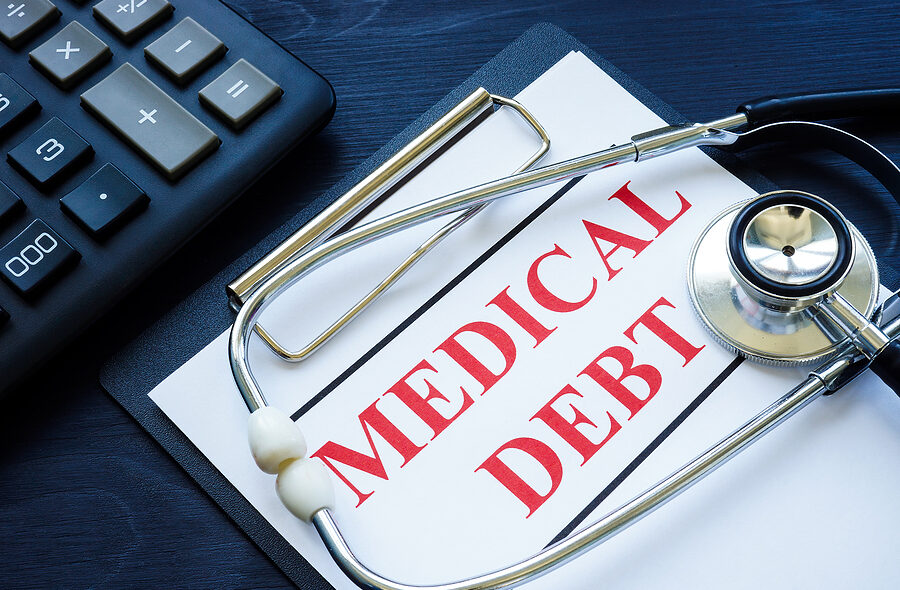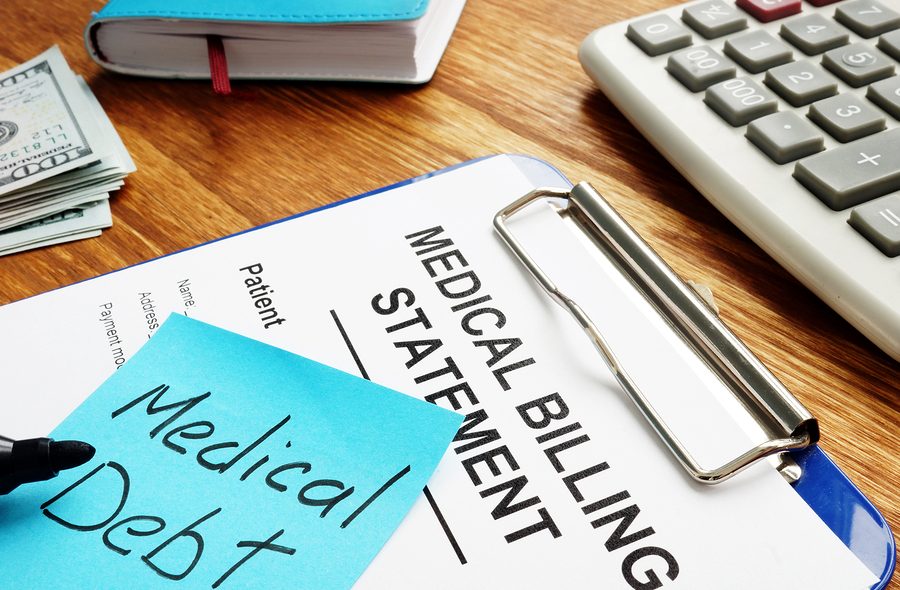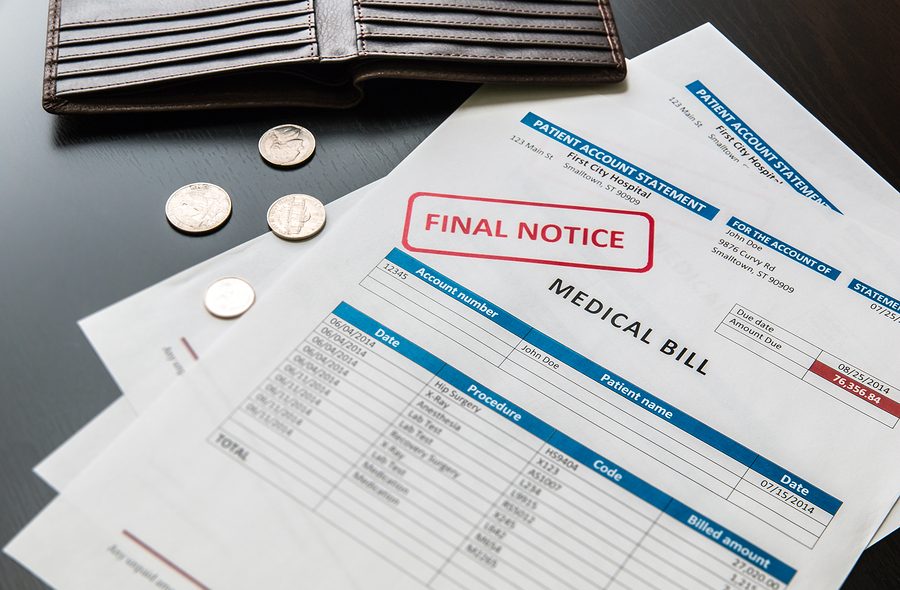Americans carry more than $220 billion in medical debt, according to the Kaiser Family Foundation. Approximately 14 million people (6% of U.S. adults) owe more than $1,000 in medical bills, while 3 million people (1% of U.S. adults) owe more than $10,000.
How medical debt impacts your credit score has shifted in the past few years; however, a new proposed government regulation could remove medical debt completely from credit reports.
Medical debt can come from a variety of sources, including hospital visits, surgeries, doctor and dentist appointments, prescriptions, and emergency ambulance transportation.
Unpaid medical debt that is in collections can be reported to credit bureaus after one year. In April 2023, the three main credit bureaus — Experian, TransUnion and Equifax — stopped including medical debt under $500. This change eliminated nearly 70% of medical debt from credit reports, according to Equifax.
The Consumer Finance Protection Bureau (CFPB) has proposed a new regulation that would prevent nearly all medical debt from appearing on credit reports, no matter the amount.
Medical bills “have little to no predictive value when it comes to repaying other loans,” the CFPB said in a statement.
If enacted, the law would impact past-due payments from a medical provider and money owed to a collection agency.
According to the CFPB, the rule change would:
- Remove exceptions that let lenders use information about medical debt to make determinations about someone’s creditworthiness.
- Prohibit credit reporting agencies from including medical debt on credit reports sent to creditors if the creditor is prohibited from considering it.
- Bar lenders from using medical devices like wheelchairs and prosthetic limbs as collateral for loans or from repossessing them if someone cannot repay the loan.
How Medical Debt is Handled in Bankruptcy
In bankruptcy, medical debt is treated the same as credit card debt. Medical bills are listed as general unsecured debt and can be easily wiped out in a Chapter 7 bankruptcy filing. Making the decision to file for bankruptcy is never an easy one.
Fortunately, consumers have the option available to them to file for bankruptcy to escape this burden of medical debt. In a bankruptcy case, debts are classified into two categories: secured and unsecured, as well as priority and nonpriority debts. Secured debts are those that are backed by a form of collateral, while priority debts can be unsecured but receive special status, such as tax bills, student loans, and child support. Unsecured debts are those debts that are not secured by collateral and include personal loans, credit card debt, and medical debt.
In a bankruptcy case, unsecured debts are the ones that are discharged at the end of the case, while priority and secured debts are the focus of payment plans or payment in a Chapter 7 case after assets are liquidated. If a debt is discharged, this means the court has issued an order stating that the debt does not have to be paid.
Medical debt may also become part of the repayment plan issued as part of a Chapter 13 bankruptcy case. The bills may not end up paid in full, but the medical providers will receive at least some amount of payment, which helps the consumer maintain a relationship with their healthcare providers. Repayment plans normally last three to five years, ending with the consumer’s remaining debts, including medical debt, getting discharged.
Those who have experienced illness or injury and found themselves overwhelmed with medical debt should contact an experienced Miami bankruptcy attorney. In bankruptcy, medical bills are considered general unsecured debts just like credit cards. This means that medical bills do not receive priority treatment and can easily be discharged in bankruptcy. Bankruptcy laws were created to help people resolve overwhelming debt and gain a fresh financial start. Bankruptcy attorney Timothy Kingcade knows how to help clients take full advantage of bankruptcy laws to protect their assets and get successful results. Since 1996 Kingcade Garcia McMaken, P.A. has been helping people from all walks of life build a better tomorrow. Our attorneys’ help thousands of people every year take advantage of their rights under bankruptcy protection to restart, rebuild and recover. The day you hire our firm, we will contact your creditors to stop the harassment. You can also find useful consumer information on the Kingcade Garcia McMaken, P.A. website at www.miamibankruptcy.com.




